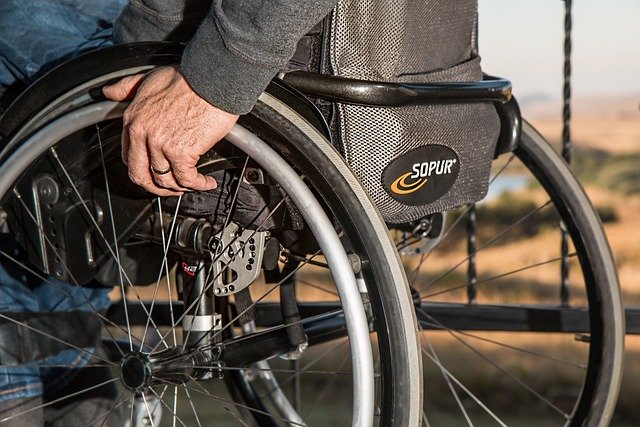Enhancing Senior Mobility: A Guide to Walking Aids for the Elderly
Senior walking aids like canes, walkers, and rollators help older adults move more safely and confidently. These mobility tools are designed to improve balance, reduce fall risk, and support independence at home or outdoors for better daily comfort and function.

What are the most common types of walking aids for seniors?
Walking aids for seniors come in various forms, each designed to address specific mobility challenges. The most common types include:
-
Canes: These simple, lightweight devices provide support for those with minor balance issues or who need minimal assistance. Canes come in different styles, such as single-point, quad-cane, and folding canes.
-
Walkers: These four-legged frames offer more stability than canes and are ideal for seniors who need additional support. Traditional walkers require lifting with each step, while wheeled walkers allow for smoother movement.
-
Rollators: Also known as rolling walkers, rollators feature wheels on all legs, making them easier to maneuver. They often include a seat for resting and a basket for carrying items.
-
Knee walkers: These specialized devices are designed for individuals recovering from leg, foot, or ankle injuries, providing an alternative to crutches.
Each type of walking aid serves a unique purpose and caters to different levels of mobility needs, ensuring that seniors can find the right fit for their specific requirements.
How do lightweight walkers benefit elderly users?
Lightweight walkers for the elderly offer numerous advantages that contribute to improved mobility and independence:
-
Easy maneuverability: The reduced weight makes it easier for seniors to lift, turn, and navigate through various environments, including tight spaces.
-
Reduced fatigue: Lighter walkers require less energy to operate, allowing seniors to use them for longer periods without tiring as quickly.
-
Increased portability: Many lightweight walkers are foldable, making them convenient for travel or storage when not in use.
-
Enhanced safety: The ease of use associated with lightweight walkers can lead to better compliance and reduced risk of accidents or falls.
-
Improved independence: With a more manageable mobility aid, seniors can maintain their independence and continue participating in daily activities with greater confidence.
These benefits make lightweight walkers an excellent choice for many elderly individuals seeking to maintain their mobility and quality of life.
What features should seniors look for in mobility aids?
When selecting senior mobility aids, it’s essential to consider several key features that can enhance safety, comfort, and usability:
-
Adjustability: Look for walking aids with adjustable height settings to ensure proper ergonomics and reduce strain on the body.
-
Weight capacity: Ensure the device can support the user’s weight safely and comfortably.
-
Grip comfort: Ergonomic handles with cushioned grips can reduce hand fatigue and improve control.
-
Stability: Consider the base design and wheel configuration to ensure adequate stability for the user’s needs.
-
Braking system: For wheeled devices, reliable and easy-to-use brakes are crucial for safety.
-
Portability: Foldable or collapsible designs can be beneficial for storage and transportation.
-
Accessories: Features like built-in seats, baskets, or trays can enhance functionality and convenience.
-
Durability: Look for high-quality materials and construction to ensure longevity and reliability.
By prioritizing these features, seniors can select a mobility aid that best suits their individual needs and lifestyle.
How do walking aids improve safety and independence for seniors?
Walking aids play a crucial role in enhancing safety and promoting independence among seniors:
-
Fall prevention: By providing additional support and stability, walking aids significantly reduce the risk of falls, a major concern for older adults.
-
Improved balance: These devices help seniors maintain better balance, especially when navigating uneven surfaces or stairs.
-
Increased confidence: With the added support of a walking aid, seniors often feel more confident in their ability to move around, encouraging them to stay active.
-
Extended mobility: Walking aids allow seniors to travel longer distances and maintain their daily routines with less fatigue.
-
Pain reduction: For those with joint pain or arthritis, walking aids can help distribute weight more evenly, reducing strain on affected areas.
-
Social engagement: By facilitating easier movement, walking aids enable seniors to participate more fully in social activities and maintain connections with family and friends.
-
Home safety: Mobility aids can make it safer for seniors to perform daily tasks around the house, reducing the risk of accidents during routine activities.
These benefits contribute to an overall improvement in the quality of life for seniors, allowing them to maintain their independence and enjoy a more active lifestyle.
What are some top-rated walking aids for seniors?
When it comes to selecting the best walking aids for seniors, it’s important to consider factors such as quality, features, and user reviews. Here’s a comparison of some highly-rated options:
| Product Name | Type | Key Features | Cost Estimation |
|---|---|---|---|
| Drive Medical Nitro Euro Style Rollator | Rollator | Lightweight aluminum frame, large front wheels, foldable, built-in seat | $180 - $220 |
| Hugo Mobility Adjustable Quad Cane | Quad Cane | Adjustable height, shock-absorbing cushioned hand grip, 4-point base | $30 - $40 |
| Medline Premium Empower Folding Walker | Walker | Foldable, 5-inch wheels, ergonomic handles, 300 lb weight capacity | $50 - $70 |
| Vive Folding Cane | Folding Cane | Adjustable height, foldable, slip-resistant base, ergonomic handle | $20 - $30 |
| Nova Traveler 3-Wheeled Walker | 3-Wheel Rollator | Lightweight, highly maneuverable, large zippered storage pouch | $70 - $90 |
Prices, rates, or cost estimates mentioned in this article are based on the latest available information but may change over time. Independent research is advised before making financial decisions.
These walking aids represent a range of options to suit different needs and preferences. It’s crucial to consult with a healthcare professional to determine the most appropriate device for individual circumstances.
In conclusion, walking aids for seniors play a vital role in maintaining mobility, safety, and independence. From lightweight walkers to versatile rollators, there are numerous options available to support older adults in their daily activities. By carefully considering individual needs and consulting with healthcare professionals, seniors can select the most suitable mobility aid to enhance their quality of life and continue enjoying an active lifestyle with confidence.
This article is for informational purposes only and should not be considered medical advice. Please consult a qualified healthcare professional for personalized guidance and treatment.




